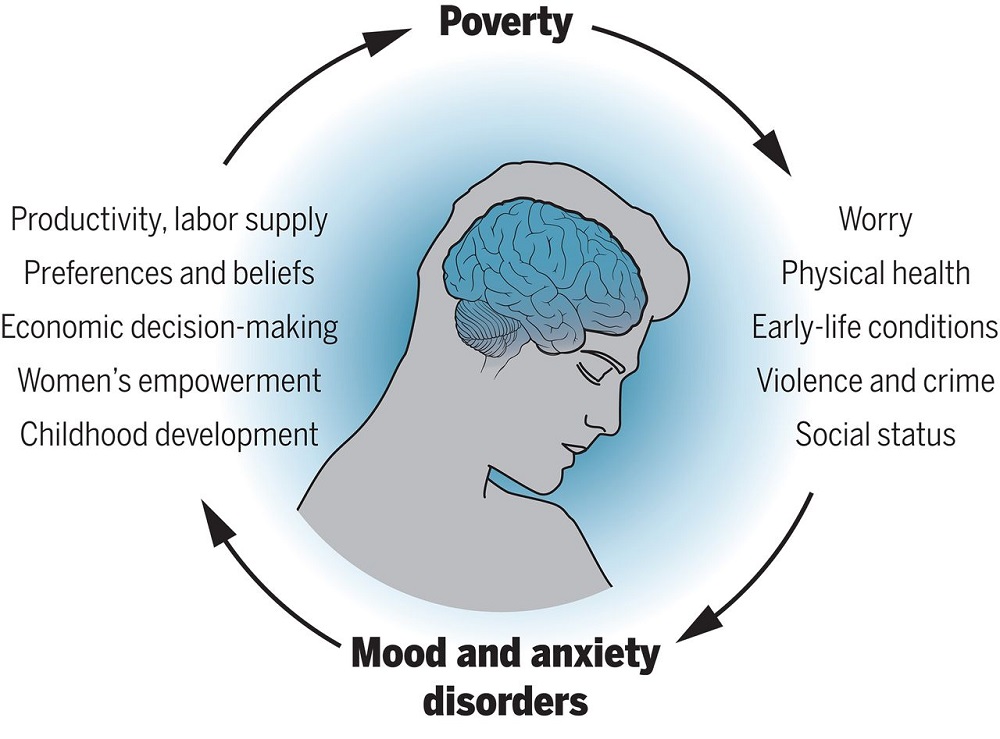Poverty and mental illness are two problems that many people struggle with. In fact, they often go hand-in-hand. Those who live in poverty or who experience financial instability often also struggle with mental health issues. This is because being unable to meet your basic needs can lead to a variety of stressors, which in turn can trigger mental illnesses like depression, anxiety, or schizophrenia.
If you’re struggling with either poverty or mental illness yourself, you might be wondering what the link between poverty and Mental Illness is. The good news is that there are many ways to cope with these issues if you know where to look for support. Read on for more information about the link between poverty and Mental illness and how you can get help if you need it.
What is Mental Illness?
Mental illness is a general term for a variety of mental health conditions. Mental health conditions are diagnosed based on symptoms, which can vary from person to person. Some common symptoms of mental illness include changes in mood, thinking, or behavior.
Mental illness is often misunderstood and stigmatized. Mental health conditions are real, and they can be serious. Mental illness is not a sign of weakness, and it is not something that someone can “snap out of.” Mental illness is treatable, and many people with mental illness live happy and fulfilling lives.
How Can Be Poor Lead to Mental Illness?
One of the most important is that people who live in poverty are more likely to experience stress and trauma. This can lead to mental health problems, as well as substance abuse and other coping mechanisms.
Poverty also limits access to mental health care. This can mean that people don’t get the help they need when they’re experiencing mental health problems. It can also make it harder to recover from mental illness.
There are also biological factors that play a role in the link between poverty and mental illness. For example, people who are poor are more likely to have nutrient deficiencies, which can impact mental health. Poverty can also lead to exposure to toxins and other environmental hazards, which can also affect mental health.
How Can Mental Illness Lead to Poverty?
Mental illness can lead to poverty in many ways. First, mental illness can lead to job loss or poor job performance, which can, in turn, lead to poverty. Second, mental illness can lead to expensive medical bills, which can also lead to poverty. Third, mental illness can lead to social isolation and a lack of supportive relationships, which can make it difficult to find and keep a job or to earn enough money to live on. Finally, mental illness can lead to unhealthy behaviors, such as substance abuse, which can also lead to poverty.
Strategies for Coping with Poverty and Mental Illness Together
There are some strategies that can be used to cope with poverty and mental illness together. One approach is to seek out support from community organizations or government programs that can help to offset the costs of living with mental illness. Another strategy is to create a support system of friends or family members who can offer practical and emotional help. Additionally, it can be helpful to develop a plan for managing finances and other practical matters, to reduce stress and promote stability. Finally, it is also important to take care of oneself emotionally and mentally, to maintain a positive outlook and a sense of hope.
Final Words
We hope you enjoyed this blog post. As you can see, poverty is a major factor in mental illness. If you are struggling with mental illness or you know someone who is, please reach out for help. You can contact the National Alliance on Mental Illness. We hope you enjoyed this blog and that you learned something new about the link between poverty and mental illness. Thank you for reading!
